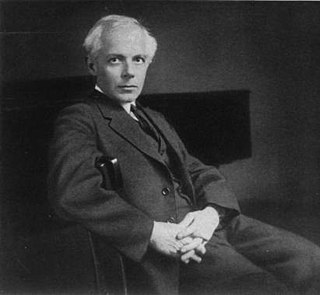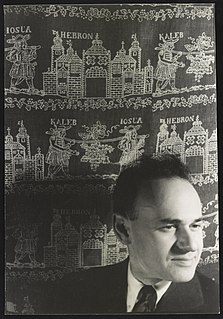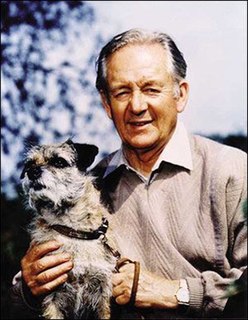Top 1180 Folk Quotes & Sayings - Page 20
Explore popular Folk quotes.
Last updated on November 14, 2024.
Religion should be subject to commonsense appraisal and rational review, as openly discussible as, say, politics, art and the weather. The First Amendment, we should recall, forbids Congress both from establishing laws designating a state religion and from abridging freedom of speech. There is no reason why we should shy away from speaking freely about religion, no reason why it should be thought impolite to debate it, especially when, as so often happens, religious folk bring it up on their own and try to impose it on others.
When we teach a child to sing or play the flute, we teach her how to listen. When we teach her to draw, we teach her to see. When we teach a child to dance, we teach him about his body and about space, and when he acts on a stage, he learns about character and motivation. When we teach a child design, we reveal the geometry of the world. When we teach children about the folk and traditional arts and the great masterpieces of the world, we teach them to celebrate their roots and find their own place in history.
I knew I wanted to be in comedy but the path of least resistance was doing stand-up in folk music clubs where I could get on stage. I guess you could get up no matter how bad you were and you didn't have to audition. You just got up. Everything else required an audition and if you auditioned for a TV show, you would stand in line with a hundred other people. But at the clubs, it was okay just to get up, so that's why I started in stand-up.
Printed prose is historically a most peculiar, almost an aberrant way of telling stories, and by far the most inherently anesthetic: It is the only medium of art I can think of which appeals directly to none of our five senses. The oral and folk tradition in narrative made use of verse or live-voice dynamics, embellished by gesture and expression--a kind of rudimentary theater--as do the best raconteurs of all times. Commonly there was musical accompaniment as well: a kind of one-man theater-of-mixed-means.
Until we can insert a USB into our ear and download our thoughts, drawing remains the best way of getting visual information on to the page. I draw as a collagist, juxtaposing images and styles of mark-making from many sources. The world I draw is the interior landscape of my own personal obsessions and of cultures I have absorbed and adapted, from Latvian folk art to Japanese screens. I lasso thoughts with a pen. I draw a stave church or someone from Hello! magazine not because I want to replicate how they look, but because of the meaning they bring to the work.
Mama, Mama, help me get home I'm out in the woods, I am out on my own. I found me a werewolf, a nasty old mutt It showed me its teeth and went straight for my gut. Mama, Mama, help me get home I'm out in the woods, I am out on my own. I was stopped by a vampire, a rotting old wreck It showed me its teeth and went straight for my neck. Mama, Mama, put me to bed I won't make it home, I'm already half-dead. I met an Invalid, and fell for his art He showed me his smile, and went straight for my heart. -From "A Child's Walk Home," Nursery Rhymes and Folk Tales
I take a less gloomy view. A good life means fighting to be human under growing difficulties. A lot of young folk know this and fight very hard, but after a few years life gets easier for them and they think they've become completely human when they've only stopped trying. I stopped trying, but my life was so full of strenuous routines that I wouldn't have noticed had it been not for my disease. My whole professional life was a diseased and grandiose attack on my humanity. It is an achievement to know that I am simply a wounded and dying man. Who can be more regal than a dying man?
Our peasant music, naturally, is invariably tonal, if not always in the sense that the inflexible major and minor system is tonal. (An "atonal" folk-music, in my opinion, is unthinkable.) Since we depend upon a tonal basis of this kind in our creative work, it is quite self-evident that our works are quite pronouncedly tonal in type. I must admit, however, that there was a time when I thought I was approaching a species of twelve-tone music. Yet even in works of that period the absolute tonal foundation is unmistakable.
If we pursue this way, if we are decent, industrious, and honest, if we so loyally and truly fulfill our duty, then it is my conviction that in the future as in the past the Lord God will always help us. In the long run He never leaves decent folk in the lurch. Often He may test them, He may send trials upon them, but in the long run He always lets His sun shine upon them once more and at the end He gives them His blessing.
When I started out playing guitar and singing, I was about twelve, going on thirteen. The role models for me back then were the folk singers. They all had these high, really nice voices and ranges, like Judy Collins and Joan Baez, and then later, of course, Joni Mitchell and Linda Ronstadt. I decided early on that I was going to learn how to write songs really, really well, because I didn't want to have to compete as a singer. I didn't feel that it was my strong point.
Once upon a time, when men and women hurtled through the air on metal wings, when they wore webbed feet and walked on the bottom of the sea, learning the speech of whales and the songs of the dolphins, when pearly-fleshed and jewelled apparitions of Texan herdsmen and houris shimmered in the dusk on Nicaraguan hillsides, when folk in Norway and Tasmania in dead of winter could dream of fresh strawberries, dates, guavas and passion fruits and find them spread next morning on their tables, there was a woman who was largely irrelevant, and therefore happy.
I have seen quite a few folk whom I know to be both fair minded and, as it happens,[Bob] Dylan fans, take up cudgels for this position. To them, it's not necessarily that Dylan doesn't merit the highest honour. It's that he doesn't merit this specific highest honour [Nobel prize], in the way a champion pole vaulter shouldn't be given a medal for the long jump. It is in this group that the Wahey!s are mainly to be found, firing off jests, or mock solemnly reciting Dylan's sillier lyrics as if these are entirely representative of his oeuvre.
If I like hardcore straight-edge punk music, gentle psychedelic folk music, gangster rap, indie-rock with a lot of guitar pedals, and I find inspiration from all these things in different songs of mine, shouldn't I be allowed to make any of this kind of music that I want? And it's the same for the comic books, why should I only make autobiographical stories? Or only political stories? Or only superhero stories? Or only comedy stories? I am a bit creatively desperate, when I sit with a pen and paper I am desperate for ANY idea that makes me excited, I don't care what kind of idea it is!
Oh, September! It is so soon for you to lose your friends to good work and strange loves and high ambitions. The sadness of that is too grown-up for you. Like whiskey and voting, it is a dangerous and heady business, as heavy as years. If I could keep your little tribe together forever, I would. I do so want to be generous. But some stories sprout bright vines that tendril off beyond our sight, carrying the folk we love best with them, and if I knew how to accept that with grace, I would share the secret.
That nations that have gone for equality, like Communism, have neither freedom nor justice nor equality, they've the greatest inequalities of all, the privileges of the politicians are far greater compared with the ordinary folk than in any other country. The nations that have gone for freedom, justice and independence of people have still freedom and justice, and they have far more equality between their people, far more respect for each individual than the other nations. Go my way. You will get freedom and justice and much less difference between people than you do in the Soviet Union.
You could look out the window today, see the sky raining fire, and say that it has all been for nothing, everything we've ever done, because now we've lost. But folk were born and lived and knew friendship and music in this city, ugly as it is, and all across this land that we fought for. Some grew old, and others were less lucky. Many bore children and raised them, and had the pleasure of making them, too, and we gave them that for as long as we could. Who has ever done more, my friend?
Why are so many of us enspelled by myths and folk stories in this modern age? Why do we continue to tell the same old tales, over and over again? I think it's because these stories are not just fantasy. They're about real life. We've all encountered wicked wolves, found fairy godmothers, and faced trial by fire. We've all set off into unknown woods at one point in life or another. We've all had to learn to tell friend from foe and to be kind to crones by the side of the road. . . .
In spite of their obvious differences, folk art and popular art have much in common; they are easy to understand, they are romantic, patriotic, conventionally moral, and they are held in deep affection by those who are suspicious of the great arts. Popular artists can be serious, like Frederick Remington, or trivial, like Charles Dana Gibson; they can be men of genius like Chaplin or men of talent like Harold Lloyd; they can be as uni versal as Dickens or as parochial as E.P. Roe; one thing common to all of them is the power to communicate directly with everyone.
If your experiences suggest to you that poor black folk are lazy, then you must be true to those experiences - except, however, as your experiences are pressured by empirical investigation of complex phenomena. I suspect that even when you control for variables of individual laziness, you'll see that what you see before you masses of black poor people unwilling to work hard to get better will not be as simply concluded as you might at first believe. Continue your good work.
I enjoy writing songs that could have been written before [my time]. When I feel like I'm tapping into a deep vein in the body of American music, it gives me strength as a writer, like I'm dipping my pen into a deep ink well. That's the folk music tradition. Like Pete Seeger said, 'Everyone's a link in the chain.' It's a strong chain, so rely on it. ... I believe it takes all those great songs in the past to make your song even a little bit good.
Yes, I heard my people singing!-in the glow of parlor coal-stove and on summer porches sweet with lilac air, from choir loft and Sunday morning pews-and my soul was filled with their harmonies. Then, too, I heard these songs in the very sermons of my father, for in the Negro's speech there is much of the phrasing and rhythms of folk-song. The great, soaring gospels we love are merely sermons that are sung; and as we thrill to such gifted gospel singers as Mahalia Jackson, we hear the rhythmic eloquence of our preachers, so many of whom, like my father, are masters of poetic speech.
The trouble today is that many Christians live in a kind of bubble of assumptions about what their Christianity means, especially if it places them comfortably among "the good guys," - assumptions that are likely to be drawn as much from folk-Christianity, surrounding political culture, popular pulp-books about the "End Times," or their favourite guru writer or therapist, than from sober and comprehensive reading of the Bible as a whole. Prophets and preachers have the unwelcome task of pricking that bubble with the sharpness of actual texts and teachings of the Bible itself.
Gran, for the gods' love, it's talk like yours that starts riots!" I said keeping my voice down. "Will you just put a stopper in it?" She looked at me and sighed. "Girl, do you ever take a breath and wonder if folk don't put out bait for you? To see if you'll bite? You'll never get a man if you don't relax." My dear old Gran. It's a wonder her children aren't every one of them as mad as priests, if she mangles their wits as she mangles mine. "Granny, "I told her, "this is dead serious. I can't relax, no more than any Dog. I'm not shopping for a man. That's the last thing I need.
This was early '90s and in New York hip-hop was coming on really strong; that was the sort of urban folk music that was almost threatening to eclipse rock music and indie rock music in terms of popularity, which it has certainly gone on to do. But you know, this is the end of the 1980s, beginning of the '90s. The whole independent label thing has really evolved to this incredible point from the early '80s when we started, and there wasn't one record label at all, until a couple people started forming these small labels.
Folk-lore means that the soul is sane, but that the universe is wild and full of marvels. Realism means that the world is dull and full of routine, but that the soul is sick and screaming. The problem of the fairy tale is: what will a healthy man do with a fantastic world? The problems of the modern novel is: what will a madman do with a dull world? In the fairy tales the cosmos goes mad; but the hero does not go mad. In the modern novels the hero is mad before the book begins, and suffers from the harsh steadiness and cruel sanity of the cosmos.
You can't talk about solving the economic problem of the Negro without talking about billions of dollars. You can't talk about ending the slums without first saying profit must be taken out of the slums. You're really tampering and getting on dangerous ground because you are messing with folk then. You are messing with captains of industry. Now this means that we are treading in difficult water, because it really means that we are saying that something is wrong with capitalism.
There are many things that black women can continue to do to help black folk. First, black women have historically been among the most vocal advocates for equality in our community. We must take full advantage of such courage by continuing to combat the sexism in our communities. Black women, whether in church, or hip-hop, don't receive their just due. Second, when black women are in charge of child-rearing, they must make ever so sure to raise black children who respect both men and women, and who root out the malevolent beliefs about women that shatter our culture.
I think the other thing that's important is getting to a place, which very, very rarely happens with improvising groups, where somebody can decide not to play for a while. You watch any group of musicians improvising together and they nearly all play nearly all the time. In fact I often say that the biggest difference between classical music and everything else is that classical musicians sometimes shut up because they're told to, because the score tells them to. Whereas any music that's sort of based on folk or jazz, everybody plays all the time.
We had our own civilization in Africa before we were captured and carried off to this land. We smelted iron, danced, made music and folk poems; we sculpted, worked in glass, spun cotton and wool, wove baskets and cloth. We invented a medium of exchange, mined silver and gold, made pottery and cutlery, we fashioned tools and utensils of brass, bronze, ivory, quartz, and granite. We had our own literature, our own systems of law, religion, medicine, science, and education.
And there was that letter from the Bramleys—that really made me feel good. You don’t find people like the Bramleys now; radio, television and the motorcar have carried the outside world into the most isolated places so that the simple people you used to meet on the lonely farms are rapidly becoming like people anywhere else. There are still a few left, of course—old folk who cling to the ways of their fathers and when I come across any of them I like to make some excuse to sit down and talk with them and listen to the old Yorkshire words and expressions which have almost disappeared.
Of course, I could never suggest that only poor people are misogynistic; too many rich folk are just as hateful of women as any poor person might be. I don't know if social problems are only circular; perhaps other geometric metaphors might better describe the triangular effects of social vulnerability, political oppression, and racial disadvantage. I think you're right - we've got to focus on both analyses and solutions. And sometimes, an adequate analysis goes far along in suggesting a suitable solution.
The music certainly plays a major role. You can be free enough to comfort each other, to touch each other, to embrace each other, to engage each other, to not be afraid of each other. The music certainly has that very strong element. Go back to folk songs, gospel, jazz, and spirituals. See, all of that came out of tremendous pain and hurt, rejection, loss, alienation, and abandonment. What I'm doing is I'm expressing my pain and hope at the same time.
I will remember what I was, I am sick of rope and chains - I will remember my old strength and all my forest affairs. I will not sell my back to man for a bundle of sugar cane; I will go out to my own kind, and the wood-folk in their lairs. I will go out until the day, until the morning break - Out to the wind's untainted kiss, the water's clean caress; I will forget my ankle-ring and snap my picket stake. I will revisit my lost love and playmates masterless!
Don't Look Down” is her official debut as Skylar Grey, the singer, born Holly Brook Hafermann and raised in Mazomanie, Wis., has been making albums since she was a tween. Grey and her mother sang as a folk duo under the name Generations; they released three indie discs. “I learned a lot about professionalism, how the show must go on even though I feel like [expletive] sometimes,” Grey remembers. “I have a lot of experience in the studio, performing onstage, talking to an audience. I learned most of that stuff when I was performing with my mom.
The white music was melodic and pretty, and you had beautiful women's voices like Gogi Grant and even the Andrews Sisters. Then I went directly to rhythm and blues, which had beautiful voices but not much melody in particular and pretty much the same chord pattern. I loved it, I was entrenched in it, but then folk music came in the middle of that for me, and made its own path. And it was part of the rebellion against bubblegum music, or music that is pretty but doesn't say anything.
The only thing I collect is art. I collect it because I like looking at it. A lot of it is really personal stuff that my friends have made, paintings that my husband's mother made, and things that I bought. I buy abstract art on eBay, and I buy some outsider art on eBay, or what is called folk art, I buy a lot of. I have a lot of professional art work as well as more stuff my friends' kids make. To have a wall of art to look at, I feel really surrounded by love, because so much of the work is related to my friendships.
Electronic music was just discovery about sound, all our sound options. The core percussions and melodies, they forget about it, they didn't think about those those for a good four, five years, because they were just discovering the new tools and what they could do with them, you know? The big folk revival, I think is a backlash against that. And now, I think they'll probably try to find somewhere in the middle. It's interesting. It's like push-and-pull. It's always like that, you know? Music history is always like that, this repeating evolution of music.
At best, the relationship between drama critic and playwright is a pretty twiggy affair. When I'm asked whom I write for, after the obligatory, I write only for myself, I realize that I have an imaginary circle of peers - writers and respected or savvy theatre folk, some dramatic writers and some not, some living, some long gone. . . . Often a writer is aware as he works that a certain critic is going to hate this one. . . . You don't let what a critic might say worry you or alter your work; it might even add a spark to the gleeful process of creation.





































